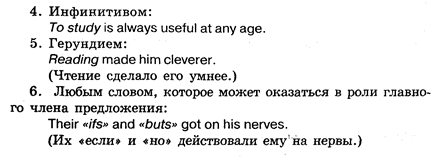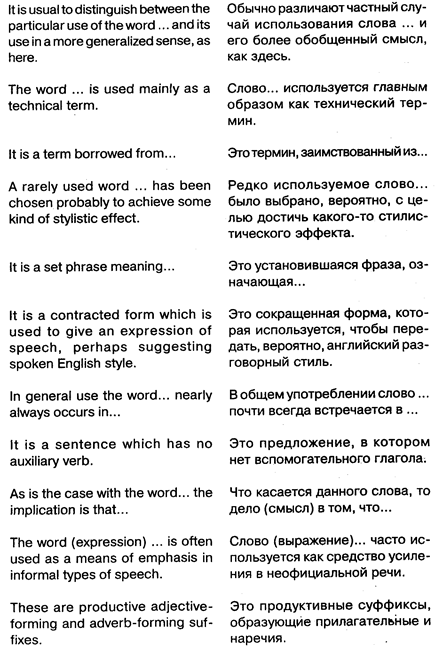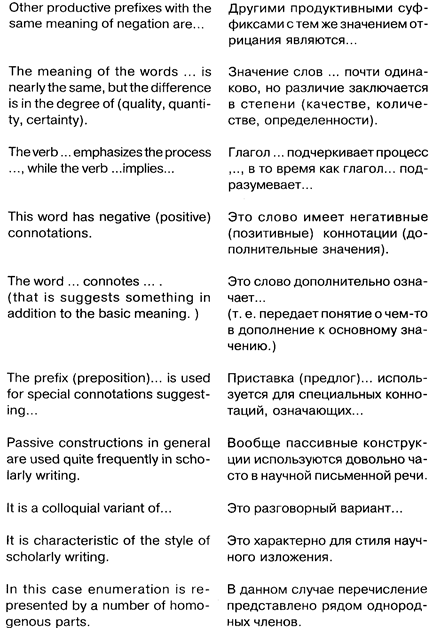
Заглавная страница Избранные статьи Случайная статья Познавательные статьи Новые добавления Обратная связь FAQ Написать работу КАТЕГОРИИ: ТОП 10 на сайте Приготовление дезинфицирующих растворов различной концентрацииТехника нижней прямой подачи мяча. Франко-прусская война (причины и последствия) Организация работы процедурного кабинета Смысловое и механическое запоминание, их место и роль в усвоении знаний Коммуникативные барьеры и пути их преодоления Обработка изделий медицинского назначения многократного применения Образцы текста публицистического стиля Четыре типа изменения баланса Задачи с ответами для Всероссийской олимпиады по праву 
Мы поможем в написании ваших работ! ЗНАЕТЕ ЛИ ВЫ?
Влияние общества на человека
Приготовление дезинфицирующих растворов различной концентрации Практические работы по географии для 6 класса Организация работы процедурного кабинета Изменения в неживой природе осенью Уборка процедурного кабинета Сольфеджио. Все правила по сольфеджио Балочные системы. Определение реакций опор и моментов защемления |
Основные трудности, которые обычно возникают при лексико-грамматическом разбореСодержание книги
Поиск на нашем сайте
Суффиксы и префиксы.
Наиболее продуктивные (т.е. те, с помощью которых образуют новые слова) суффиксы существительных: -er, -or, -ist, -ian, -ion, -lion, -sion, -ing, -ness, -ity, -ism;
менее продуктивные или непродуктивные: -age, -ment, -иrе, -апсе, -епсе, -dom, -hood, -ship, -th.
Наиболее продуктивные суффиксы прилагательных: -able, -ibie, -al, -у, -less, -ish, -ic, ive;
другие суффиксы прилагательных: -ent, -ant, -ful, -en, -ous, -ly.
Суффиксы глаголов: -ize (продуктивный); -fy (малопродуктивный); -en (непродуктивный).
Суффиксы наречий: -ly (наиболее продуктивный); -ward(s).
Префиксы: с отрицательным значением: ип-, dis-, de-, in- (il-, ir-, im-), поп-, mis-, under-; с разным значением: anti-, со-, counter-, en-, inter-, over-, post-, pro-, re-, sub-.
Наибольшую трудность чаще всего вызывает разбор с к а з у е м о г о. Простое сказуемое выражается глаголом в личной форме в любом времени, залоге и наклонении. (Вспомогательные глаголы, которые служат для образования времен, тоже относятся к простому сказуемому.) They will be waiting for him. The meeting will be held there. A new play will be staged next month. A doctor was sent for. He has been wearing that suit for no less than five years. Составное глагольное сказуемое помимо основного глагола включает в себя также или модальные глаголы (и их заменители), или глаголы типа to begin, to start, to end, to want, to decide, to seem, to be seen, to be reported и т. д. Эти глаголы показывают не само действие, а его возможность или невозможность, начало, конец, отношение к нему и т.д. The meeting was to be held at five. They had to part. You should do it in some other way. He decided to give up smoking. They were seen standing on the corner. The air seems to have no weight. The plane i s reported to be missing.
Составное глагольное сказуемое имеет глагол-связку и именную часть. Самая частая связка – это глагол to be. В роли связки могут также выступать глаголы to get, to become, to grow, to seem, to appear и др.
He is a student. It is getting colder. The wind was growing stronger. They became good specialists. The book seems quite interesting.
Именная часть может выражаться существительным, прилагательным, местоимением, наречием, неличными формами глагола (инфинитивом, причастием, герундием).
The lesson is over. They were out. The most difficult thing was to attack. Their aim is mastering English.
О второстепенных членах предложения обычно спрашивают меньше. Основной интерес, как правило, вызывает сказуемое и то, как абитуриент может различить в нем именную и глагольную часть. Второстепенные члены предложения, т. е. дополнение, определение и обстоятельство, после того как выделены подлежащее и сказуемое, находить проще. Они отвечают обычно на те же вопросы, что и в русском языке, поэтому здесь ограничимся лишь краткими примерами. Прямое дополнение (лицо или предмет, на которые переходит действие):
Не wrote a letter. They bought some grapes. It did not require switching on the light.
Неличные формы глагола тоже могут иметь при себе прямое дополнение:
Не required turning off the water (the gas). Косвенное дополнение (лицо, к которому обращено действие):
Не showed them the letter. They showed the passer-by the way to the hotel. Предложное дополнение.
The letter was written by his friend. He was aware of the fact. They believed in his talent. Определение. (Отвечает на вопросы: какой? чей? сколько?)
She saw an old man. The man standing at the door smiled. They had ten pieces of luggage. He was reading a letter written by his friend. It's somebody else's book. They visited the health centre. The machine was in the state of rest. The most important thing for him to do was to revise grammar. Обстоятельства. Как и в русском языке, они указывают место, время, образ действия, причину, цель, степень и отвечают на те же вопросы (где?, когда?, как? (при каких обстоятельствах?), по какой причине?, для чего?, в какой степени (мере)?). Обстоятельства, особенно места и времени, обычно определить достаточно легко. Правда, иногда путают причину и цель.
They were shivering with cold (причины). To overcome the differences he advised them to put off the talk (цели). He saw almost all of them (степени, меры). The play concludes very much as it began, with the visitors gone (образа действия или сопутствующих обстоятельств).
1. What part of speech is the word «question» in the sentence: «He wants first of all to question a large number of people about their feelings on the matter?» What part of the sentence is it?
– It is a verb inthe form of Infinitive. It means «to ask a question, to examine». In this sentence it is a part of a Compound Verbal Predicate.
2. What is the difference between this verb and the verb «to ask» and «to interview»?
– It is more formal than the verb «to ask» and belongs to the style of scholarly writing or to legal language. For example, "He was questioned by the police.» The verb «to interview» means «to meet for discussion». Thus, for example, employers interview applicants for posts. This verb is also widely used in the language of the press when reporters have a talk with people whose views are requested. «The reporter interviewed University students.»
3. What synonyms and antonyms of the word «large» do you know?
– I can give the following synonyms: great, big, considerable. But strictly speaking, each of these words has its own connotations and we cannot simply substitute one word for another. Thus, for instance, we can say «a large number», «a great number». But if we say «a great writer» we cannot say «a large writer» in this sense.
The antonyms for «large» are: small, little, slight. But as is the case with the synonyms their use depends on the situation.
4. Give the morphological analysis of the word «unbelievable». Can you give any more examples of the adjectives with the same suffix and prefix?
– It is an adjective. It is formed from the verb «to believe». «Believe» is the root, «un-» is a productive prefix, «-able» is a productive suffix. The meaning of the prefix is negative, it implies the absence of something. The suffix «-able» may serve to coin new words, so it is called productive adjective-forming suffix. Other examples with the same suffix and prefix are: unfavourable, uneatable, unsuitable.
5. What do the expressions «as a matter of fact», «it goes without saying» and «make do with something» mean?
– «As a matter of fact» means «although you may not know about it or may be surprised». It may be translated into Russian as «фактически, на самом деле». «It goes without saying» means something which can be understood without actually being stated. Its Russian equivalent is «само собой разумеется». «Make do with something» means to manage with something although it may not be really adequate or satisfactory, for example: «He had to make do with cold coffee for breakfast.» – «Пришлось обойтись (довольствоваться)...». It's rather a colloquial expression.
6. Comment on the use of the article in the phrase: «The computer is a data storage system created by man.» – The definite article «the» is being used because this word is regarded in its generic sense and it means all the computers existing in the world. The indefinite article shows that this system is not specified. There are other systems and it is only one of the whole range of different systems. The article is omitted before the word «man» because neither all the people are implied nor a single person. So there is no need for an article. It means human being in general.
7. What is the plural of «modus», the singular of «strata»? What is the comparative degree of the adverbs «easily» and «early»? – The plural of «modus» is «modi» [moudai]. The singular of «strata» is «stratum» [stra-'tam]. Both of them are of Latin origin. The comparative degree of «easily» is «more easily», of «early» – «earlier».
8. What is the form of the verb «to write» in the sentence: «They knew that the article would have been written by that time.» – Future Perfect in the Past, Passive. – And in the sentence: «They knew nothing of his having written the article?» – It is Perfect Gerund Active.
9. Find the predicate in the sentences: «One important point should be mentioned.» «By that time the system will have been functioning for ten years.» «Overstatement is a frequent feature in political speeches.» What kind of predicate is it? – «Should be mentioned» is a Compound Verbal Predicate. «Should» is a modal verb here; «will have been functioning» is a Simple Predicate, Future Perfect Continuous. «Will» is an auxiliary verb; «is... a feature» – a Compound Nominal Predicate. The verb «to be» in the form of Present Simple is a link-verb.
10. What is the function of the verb «to have» in the sentence: «All news reporting in the press has to convey a good deal of information in the most readable way.»
– It is a modal verb in a Compound Verbal Predicate. It expresses obligation or necessity. As compared with the similar verbs «must» or «to be» it implies «forced by circumstances».
11. Give the opposite of «exact», «material» (adj.).
– Exact means correct in every detail, free from error. So the opposite of «exact» may be «inexact», «inaccurate'», «incorrect», «material - immaterial».
|
||||
|
Последнее изменение этой страницы: 2016-07-11; просмотров: 209; Нарушение авторского права страницы; Мы поможем в написании вашей работы! infopedia.su Все материалы представленные на сайте исключительно с целью ознакомления читателями и не преследуют коммерческих целей или нарушение авторских прав. Обратная связь - 18.118.33.130 (0.008 с.) |

















